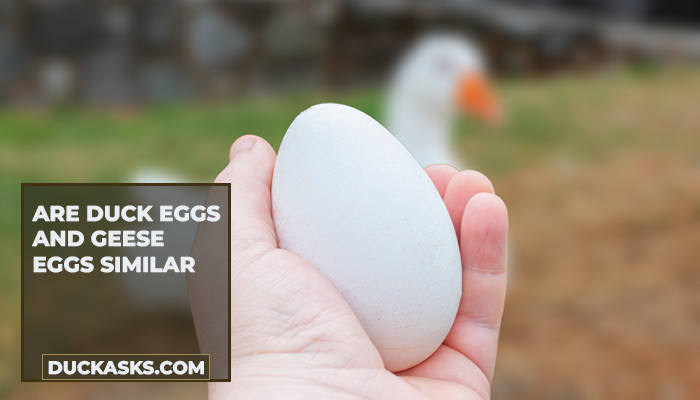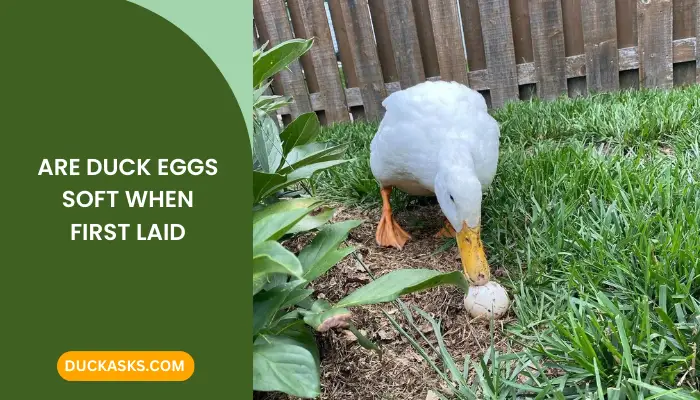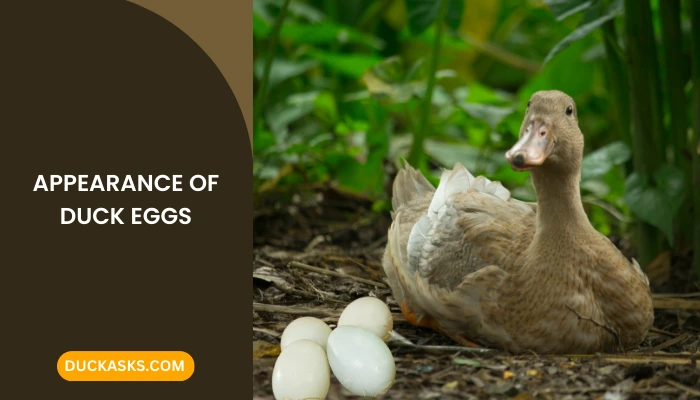Are Duck Eggs Small When They First Start Laying?
Have your ducks started laying eggs for the first time, and you’re concerned by some of their sizes?
Are duck eggs small when they first start laying, or is it referring to some underlying medical condition? Fortunately, it’s normal for duck eggs to be small when a duck first starts laying eggs. Ducks start laying eggs around 6 to 7 months of age and initially lay a few small eggs in the first batch.
These small eggs are actually underdeveloped as the reproductive system of young ducks is still developing. There is nothing to worry about as the size gets bigger over time.
So, are these eggs safe to eat? When do they reach their maximum size? If you’re curious to know the answers, dive right in.
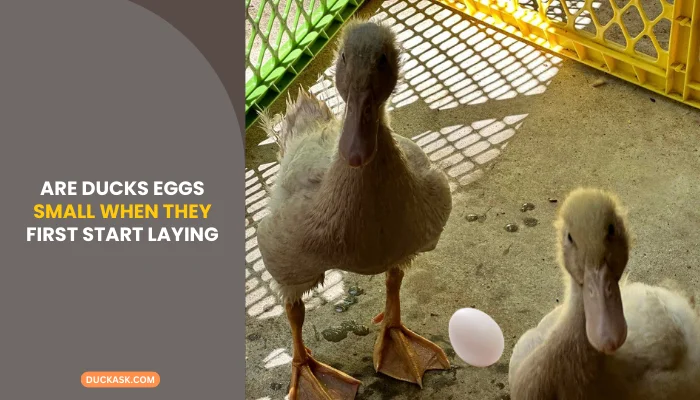
Looking for more articles about duck breeding:
How Big Is a Duck’s First Egg?
The size of a duck’s first egg can vary widely depending on factors such as the breed of duck, genetics, and individual variations.
On average, the first egg laid by a duck might be around 60-70% of the size of a typical egg from a mature duck of the same breed.
For example, if a particular breed of ducks lays eggs of 70 to 90 grams weight, the first eggs laid by the breed will mostly weigh around 50 to 70 grams per egg. Also, the first few eggs often come in unusual shapes.
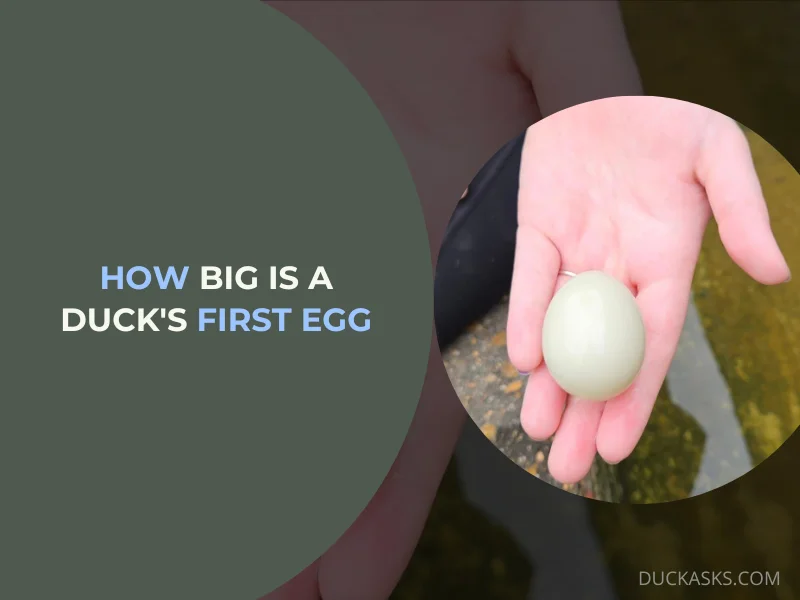
Know that the size mentioned of the first duck eggs is a general estimation. This percentage can vary widely sometimes, depending on the condition of an individual duck’s reproductive system. A duck’s first egg can even be as small as pigeon eggs.
When Do Duck Eggs Reach Their Maximum Size?
Duck eggs typically reach their maximum size a few weeks after a duck begins laying eggs for the first time.
How long it’ll take for ducks to start laying eggs in their typical sizes will vary mainly depending on the duck’s reproductive system growth and the duck breed.
Depending on the breed, ducks usually start laying eggs when they are 6-7 months old. Some breeds can start laying as early as 4 months as well, like bantam or garden ducks.
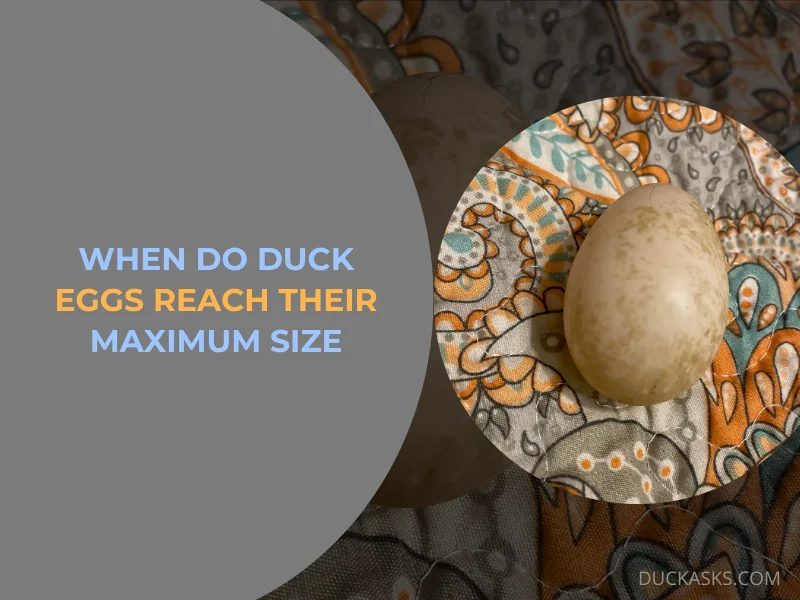
On average, it might take about 2 to 4 weeks for a duck’s eggs to reach their full size after the duck starts laying. As I said earlier, the first laid eggs may come in weird shapes and sizes, which will stabilize in size by this time period.
After that, ducks will continue to lay eggs of approximately the same size throughout their laying cycle, which can span several months.
What Does It Mean If Your Ducks Lay Small Eggs
Variation in duck eggs is a more important matter than it seems. Besides the age factor, plenty of other reasons can cause duck eggs to be smaller than the standard size.
Let’s take a look at the concerns with small duck eggs.
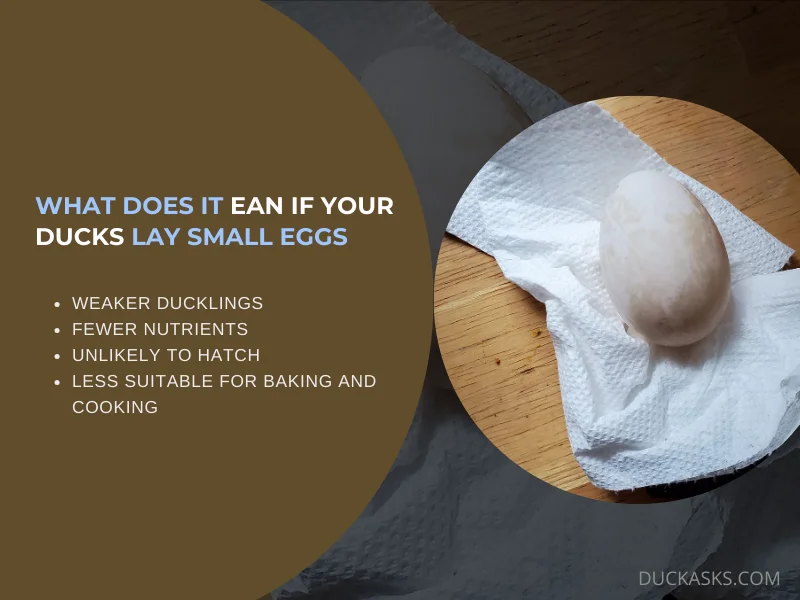
1. Weaker Ducklings
Besides the obvious benefit of large eggs having more egg content, a duckling hatched from a larger egg is more likely to grow large and healthy. Contrarily, a duckling from a small egg is likely to be weaker and producer of more small eggs.
2. Fewer Nutrients
A larger duck egg contains a bigger yolk rich in lipid contents, cholesterol, and nutrients.
Contrarily, smaller eggs are not well developed, and they lack these nutrients. These make them a lot less healthier options than fully developed duck eggs.
3. Unlikely to Hatch
First-laid duck eggs that are small are the product of an underdeveloped reproduction system. As time goes on, a duck’s reproduction system matures, and it starts to lay full sized eggs.
An underdeveloped egg lacks the nutrients inside to sustain the growth of a baby chick. So, they are very much unlikely to hatch.
4. Less Suitable for Baking and Cooking
Although small eggs are edible, they contain lighter yolk and less fat content. These features affect the texture and the moisture of the baked goods, making them less tasty.
Different Factors that Contribute to Small-Sized Duck Eggs
Other than genetics, how you care for your ducks, their diet, and their environment, these factors also impact the size of your duck’s eggs. Let’s look at some more of these factors here.
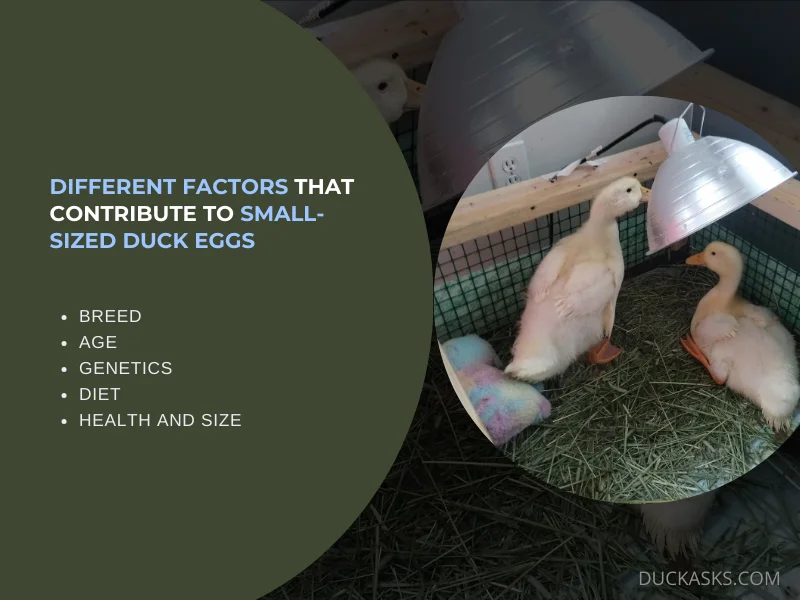
01. Breed
Duck egg size can vary widely by different breeds. Some breeds naturally produce larger eggs, while others produce smaller eggs.
And during the first batch, some breeds of ducks may even lay surprisingly small sized eggs, whereas for some breeds, it makes a negligible difference.
02. Age
Younger ducks often start off by laying smaller eggs due to their undeveloped reproductive system. As their system gradually develops, the egg size will increase until they gradually reach the optimum size.
03. Genetics
Factors concerning genetics can largely affect egg size. Fortunately, it is now possible to partially control the traits of ducks through breeding programs. You can opt for specific traits which can influence egg size, among other characteristics.
04. Diet
What you feed your ducks is what you get. Ducks that receive a well-balanced and nutritious diet are more likely to produce larger and richer eggs.
Maintaining adequate protein and increased vitamins and minerals are essential in the duck diet for proper egg development.
05. Health and Size
Ducks that are healthy and larger in size produce larger and consistent-sized eggs. Any health issues, stress, or nutritional deficiencies can impact the size and quality of the eggs severely.
Conclusion
If your ducks have just started laying eggs, it’s normal to notice a few small-sized eggs.
As long as it only continues for a few weeks, there is nothing to worry about. Gradually, the size will increase and reach a consistent phase. If your ducks continue to lay small eggs 4 weeks after starting, it may be a concern worth checking out.
This post might be helpful for new farmers and pet owners with their very first batch of ducklings. Be sure to share this article with them on Facebook, Twitter, and Pinterest.



